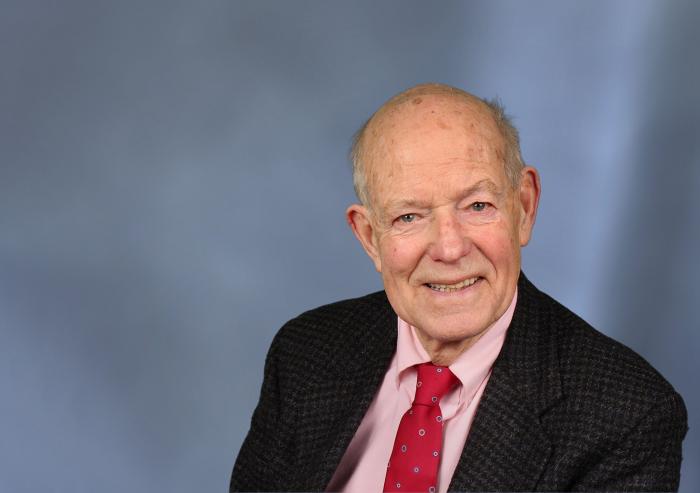Professor Emeritus David Gordon Wilson, expert in human-powered transport and gas turbines, dies at 91

David Gordon Wilson, professor emeritus of mechanical engineering, passed away on May 2 at the age of 91. Wilson served on MIT’s faculty since 1966 and remained an active member of the mechanical engineering community up until his death.
Wilson was born in 1928 and grew up in Warwickshire, England. Inspired by his love for bicycles, Wilson studied engineering at the University of Birmingham, where he received his bachelor’s degree in 1948. He continued his education at the University of Nottingham, where he earned his PhD in 1953.
Upon completing his PhD, Wilson was given a postdoctoral Commonwealth Fund Fellowship to conduct research abroad at MIT and Harvard University. At the conclusion of his fellowship, Wilson worked at Boeing as a gas turbine engineer.
After briefly returning to the U.K., Wilson embarked on a two-year stint in Africa, where he taught at the University Ibadan in Zaria, Nigeria. He also worked for Voluntary Service Overseas in Cameroon. A case of malaria forced Wilson to move home to England.
In 1960, Wilson was invited by the Northern Research and Engineering Corp. to serve as technical director and vice president. He was charged with leading efforts to form a London branch of the company that specialized in heat transfer and turbo-powered machinery.
At the invitation of Richard Soderberg, then the head of MIT’s Department of Mechanical Engineering, Wilson joined MIT’s faculty in 1966. He taught thermodynamics and mechanical design. As a professor, Wilson served as advisor to a number of students conducting research in turbomachinery, fluid mechanics, and various design topics.
While much of his primary research focused on turbine gas engines and jet engine design, Wilson parlayed a number of his passions into professional pursuits. His interest in transportation led to an appointment on a commission of the Massachusetts Bay Transportation Authority, where he gave recommendations on how to increase use and efficiency in public transportation. He also served on the Center for Transportation Studies.
Transportation was a key theme in Wilson’s career — not only in his research on jet engines, but also in a thread that would weave throughout his life: his love of bicycles. Wilson was particularly enamored with recumbent bicycles. In 1967, he helped organize an international design competition in human-powered land transport in an effort to get more people interested in bicycle design.
In 1974, Wilson released the first edition of "Bicycling Science." It became MIT Press' best-selling book and is regarded as the premiere authority on bicycle design. Throughout the 1970s, he continued to design recumbent bicycles. He eventually designed the Avatar 2000, a bike that broke the world record in speed at the International Human Powered Vehicle Association in 1982.
Around the same time, Wilson studied fossil fuel emissions and human impact on the environment. He was a staunch advocate for a “carbon fee” to encourage companies to curb fossil fuel emissions and promote the adoption of renewable energy. This pursuit got him more engaged in government, and as a result he joined the Massachusetts chapter of the grassroots organization Common Cause. He also was co-founder of the Massachusetts Action on Smoking and Health, which advocated for nonsmokers' rights.
After 28 years on the faculty at MIT, Wilson retired in 1994. In 2001, he co-founded Wilson TurboPower, a company focused on the development of microturbines.
In retirement, Wilson remained an active member of the MIT community — often attending departmental meetings and serving as a faculty judge at the annual de Florez Awards. He is survived by his wife, Ellen Wilson, his two daughters, Erica Mandau and Susan Wilson, and his granddaughter.
A memorial service will be held on May 17 at 10 a.m. at The Parish of the Epiphany, 70 Church Street, Winchester, Massachusetts.


